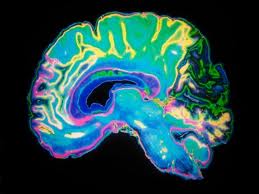In this age of instant information we live in, some things you learn about depression are going to be true, while other pieces of wisdom are simply fool’s gold. There are a lot of myths out there surrounding depression that you have to contend with, but if you work your way through the myths you will start to realize what the facts are.
Depression Myths Debunked – Depression Center
 Myths: Even if depression is a medical illness, there’s nothing that can be done about it.
Myths: Even if depression is a medical illness, there’s nothing that can be done about it.
Depression is treatable, and more than 80 percent of individuals with depressive disorders improve with treatment. As new medications and treatments are discovered, the number should continue to rise.
You might be feeling down in the dumps, but that in no way means you’re depressed. We all have our bad days. Losing a loved one, getting fired, or just waking up on the wrong side of bed are all things that can make you feel down and blue. You should realize that depression is a chronic condition where even the joys in life leave you feeling depressed.
There is nothing weak about feeling depressed, nor does it mean you have something wrong with your personality. Depression is a legitimate condition that affects millions of people, and it in no way means you’re weak-minded or that you just need to “cheer up.”
Some will say that depression is akin to schizophrenia or dementia or other psychotic conditions, but that’s far removed from the truth. While it is true that depression is caused by the brain, it’s not even close to being a form of psychosis. The symptoms of psychosis are not the same at all.
Although you will hear stress and depression grouped together quite often, that’s only because one can increase the other. Dealing with stress can worsen depression, and having depression can make things feel more stressful. Joining the two is like saying spaghetti noodles and tomato sauce are the same thing. They are not; they just play well together.
Myths About Depression
If you have a chemical imbalance, it needs to be balanced. End of story. However, thinking that it will balance itself out is a bit far fetched. Now, it’s not impossible for some chemical imbalances to straighten themselves out, but this is most likely caused by some external influence whether you realize it or not. Changing your diet and exercise habits, taking medication, and other methods can all help fix the imbalance.
Some conditions similar to depression can be inherited. Anxiety is probably one of those passed-down conditions that people have to worry about. Depression, however, is not going to pass down through your genetic code. There is not a shred of evidence supporting this, so don’t waste your time worrying about passing it on or if you got it from a parent.
Some people have a tendency to coddle an individual dealing with depression, as if they have to be protected from life in general. Well, this is doing nothing but making the issue worse. Shelter from the storm only makes everything seem like it’s a storm. People with depression need to push through the situation, not hide from it.
When you’re struggling with depression, you may be more than willing to take advice from anywhere you can find it. Be warned that there are a lot of myths out there. Deal with accurate information only when treating your symptoms.